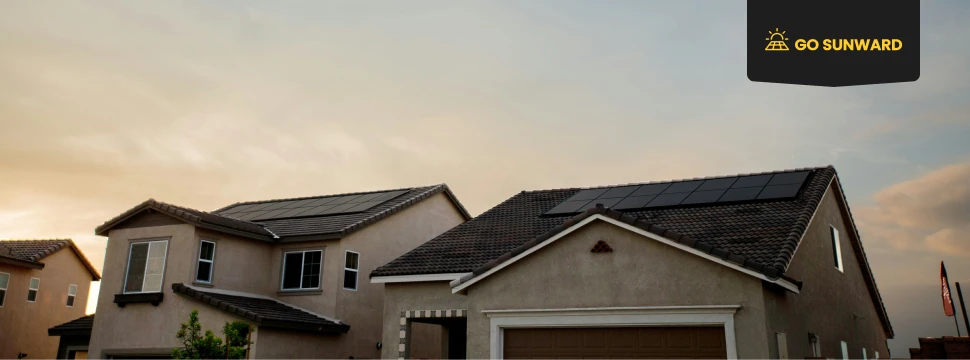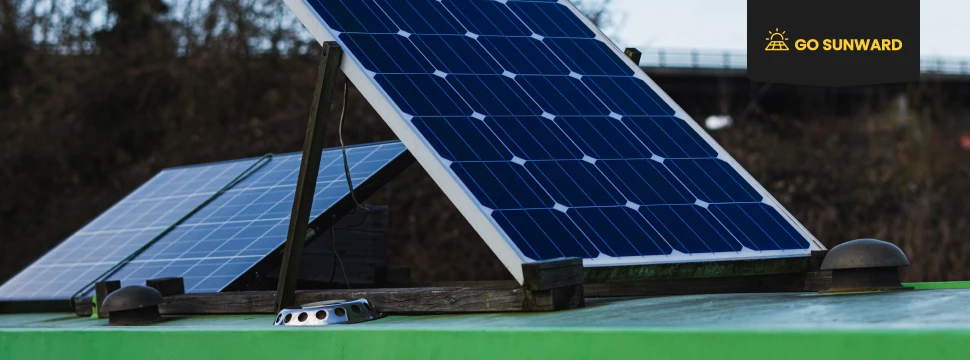Do Solar Panels Increase Home Value? This Is What The Data Says 👇
Solar panels have become increasingly popular in recent years as homeowners seek ways to reduce their carbon footprint and lower their energy bills. Beyond the environmental benefits and potential energy savings solar energy can bring, many homeowners wonder whether installing solar panels can actually increase the value of their homes. You might also wonder, is my house good for solar?
In this article, we will examine the data and research available to answer the question: Do solar panels increase home value? Let’s explore the findings and implications for homeowners considering solar system installations. Please keep in mind that the data and research behind this article is based on residential homes, and not apartments with solar panels.
The Rising Trend of Solar Panel Installations
In recent years, there has been a notable increase in the installation of solar panels on residential properties. This surge in the installation of solar panels can be attributed to a combination of influential factors, contributing to the growing appeal of solar energy solutions for homeowners.
Government Incentives & Policies
One of the primary drivers of the surge in solar panel installations in the United States is the support of various government incentives and policies. Federal, state, and local governments have introduced a range of initiatives to promote renewable energy sources, with a particular focus on solar power.
These incentives often come in the form of tax credits, rebates, and favorable financing options for homeowners who choose to invest in solar energy systems. Such financial incentives substantially lower the upfront costs associated with solar panel installation, making it more financially feasible for a broader range of homeowners. Its also now easier than ever to apply for solar financing.
Decreasing Costs
Another pivotal factor contributing to the increased adoption of solar panels is the consistent decline in the overall installation costs. Technological advancements, improved manufacturing processes, and increased competition in the solar industry have collectively driven down the price of solar panels and related equipment.
This reduction in costs has made solar installations more accessible to homeowners, encouraging them to consider this sustainable energy option as a viable investment in their homes.
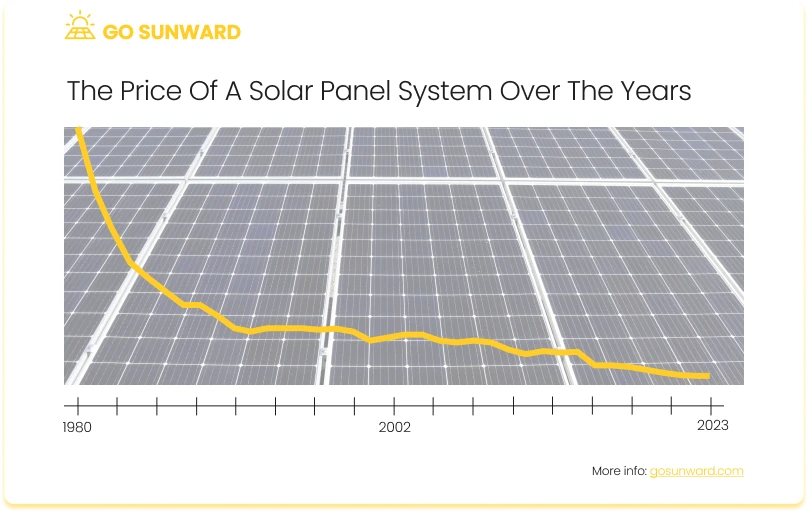
Growing Focus on Sustainability
The global shift toward sustainability and environmental consciousness has played a crucial role in the rise of solar panel installations. Increasing awareness of climate change, the finite nature of fossil fuels, and the environmental impact of traditional energy sources has motivated homeowners to seek alternative and greener solutions. Solar panels not only reduce carbon footprints by generating clean energy but also serve as a visible symbol of a homeowner’s commitment to environmental responsibility. As a result, the appeal of solar panels has grown among eco-conscious individuals and families, and are now a way to boost ESG credentials.
As more homeowners embrace solar power for its financial and ecological benefits, exploring and understanding its potential impact on home values becomes essential. So let’s delve deeper into the data and research findings to find out the extent to which solar panels can influence property value.
The Data on Solar Panels and Home Value
The question of whether solar panels increase the value of a home has been the subject of extensive research, and several studies have sought to analyze the relationship between solar panel installations and home values.
One of the most comprehensive and authoritative studies in this field was conducted by the U.S. Department of Energy’s Lawrence Berkeley National Laboratory. This rigorous research project examined a vast dataset encompassing thousands of homes across various states in the United States. One of the central findings of the Berkeley Lab study is that, on average, homes equipped with solar panel installations tend to sell for more than comparable homes without solar panels. Specifically, the study found that buyers would pay $15,000 or more for solar-powered homes.
As per the National Renewable Energy Laboratory (NREL), for every $1 reduction in your energy bills, your home’s value sees a corresponding increase of $20. To illustrate, if your solar energy system leads to annual savings of $700, your home’s value would increase by $14,000.
According to the 2021 Zillow Group Consumer Housing Trends Report, 67% of prospective homebuyers rated energy efficiency as a “very to extremely important” factor when considering a home. These potential buyers expressed a willingness to pay an average premium of 4.1%, equivalent to $9,274, for homes equipped with solar panels compared to similar properties.
Do Solar Panels Increase Home Value? Influencing Factors
It is important to note that the increase in home value is not uniform and varies based on several factors. Several factors influence the magnitude of the increase in resale value.
#1 Location matters:
The geographic location of the home plays a significant role. Solar power yields the most significant benefits in regions with elevated local electricity rates, as generating your energy can substantially reduce your monthly utility expenses. According to the U.S. Energy Information Administration (EIA), the typical monthly residential utility bill stood at $137 a month in 2022. If your monthly electricity expenses already fall well below this figure, transitioning to solar power may not result in significant savings.
Notably, states such as California, Connecticut, Texas, and New York are known for having electricity rates that surpass the national average, making them particularly advantageous locations for adopting solar energy solutions.
#2 Keep an eye on local solar market conditions:
Numerous states actively promote the adoption of solar energy by providing enticing tax incentives to homeowners. These incentives not only reduce the financial burden of transitioning to solar power but also contribute to the expansion of the state’s solar capacity.
As a result, residences equipped with solar panels in states that embrace solar-friendly policies tend to command higher market values compared to those in regions where solar power adoption lags behind.
#3 System size:
The size and capacity of the solar panel system also matter. Larger systems that can generate more electricity and provide greater energy savings are often associated with a more significant increase in home value.
Solar Panels as an Investment
Installing solar panels on your home represents more than just a green initiative; it’s a strategic financial investment with many benefits. Homeowners can enjoy reduced electricity bills and, in some cases, even earn money through net metering programs by selling excess energy back to the grid. These financial benefits can offset the initial cost of solar panel installation and enhance a property’s overall appeal.
Substantial Energy Savings: One of the primary and most immediate financial advantages of solar panels is the significant reduction in your monthly electricity bills. Solar panels harness the power of the sun to generate electricity, which can substantially offset or even eliminate your reliance on traditional grid electricity. This results in consistent savings on your energy expenses over the lifespan of the solar panel system, which can extend for several decades.
Earn Money Through Net Metering: Many regions offer net metering programs, which allow homeowners to earn money by selling excess energy generated by their solar panels back to the grid. When your solar panels produce more electricity than your household consumes, the surplus is sent to the grid, and you receive credits on your electricity bill or compensation from the utility company. This effectively turns your solar panel system into a revenue-generating asset, helping to recoup the initial installation costs over time.
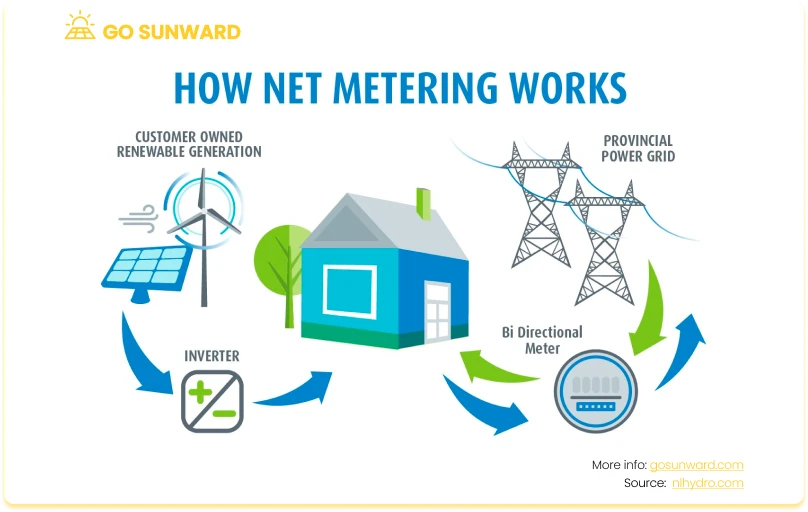
Hedge Against Rising Energy Costs: As energy prices continue to escalate, solar panels provide a shield against increasing electricity expenses. By generating your electricity, you are less susceptible to the fluctuations and price hikes associated with traditional energy sources. This protection can be especially valuable in the long run, safeguarding your budget from the uncertainties of the energy market.
Solar Panels and the Impact on Home Aesthetics
When contemplating the installation of solar panels on your home, one consideration that often arises is how these solar arrays will affect the overall aesthetics of your property. It’s a valid concern, as the visual appeal of your home is an essential aspect of its value and your personal satisfaction.
Solar panels come in a range of styles and designs to accommodate diverse architectural preferences. Traditional solar panels, known as photovoltaic (PV) panels, are typically mounted on rooftops and are often the most recognizable. However, advancements in solar technology have led to more aesthetically pleasing options.
For example, solar shingles and solar tiles are designed to blend seamlessly with your existing roofing materials, creating a more integrated and aesthetically pleasing look. These solar options mimic the appearance of traditional roofing materials while harnessing solar energy.
Take the Tesla Solar Roof as an example. A Tesla Solar Roof combines advanced solar technology with architectural design, serving as both a roof and a solar energy generator, unlike traditional solar panels.

Here are some other tricks that you can employ to help minimise the visual impact of solar panels
Panel Placement and Orientation:
The placement and orientation of solar panels on your home can significantly impact their visual impact. Placing solar panels on less visible roof sections or at angles that minimize their prominence can help maintain the overall aesthetic appeal of your home. Additionally, professional installers can work with you to find the most inconspicuous yet efficient placement for your solar panels.
Landscaping and Visual Screening:
Strategically planted landscaping and visual screening can play a role in mitigating the visual impact of solar panels. Well-placed trees, shrubs, or trellises can create a natural buffer, concealing solar panels from view without compromising their ability to capture sunlight.
Architectural Integration:
If you’re concerned about the aesthetics of solar panels on your home, consider an architectural integration approach. Some solar panel systems, such as Building-Integrated Photovoltaics (BIPV), can be incorporated into architectural elements such as awnings, pergolas, or carports. This not only adds functionality but also enhances the visual appeal of these structures, making solar energy a stylish addition to your home.
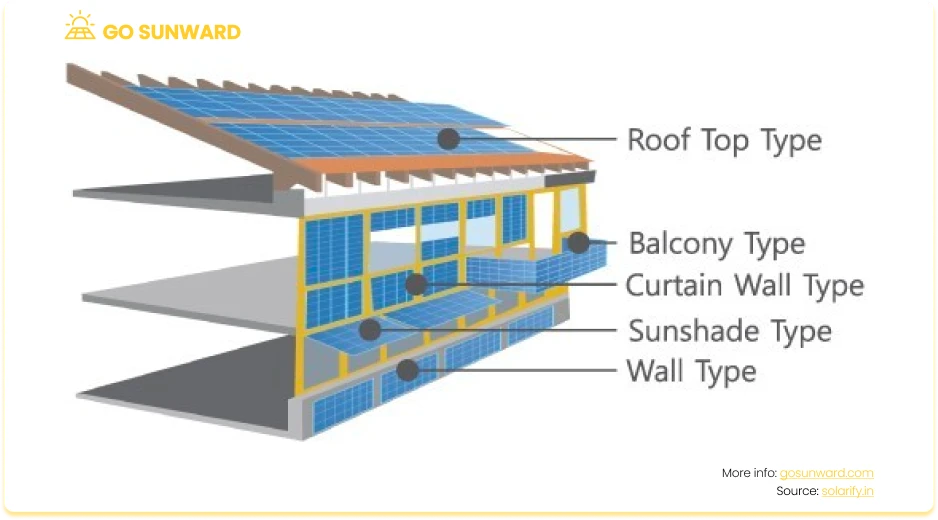
Conclusion
In conclusion, the data suggests that solar panels can indeed increase home value, although the extent of the increase varies depending on various factors. Solar panel installations offer both financial and ecological benefits for environmentally conscious homeowners looking to reduce their carbon footprint and lower their energy bills.
However, it’s crucial to weigh the costs and potential return on investment based on your location and individual circumstances before deciding to go solar.
As solar technology continues to advance and become more accessible, the positive impact on home value will likely continue to grow in the future.

